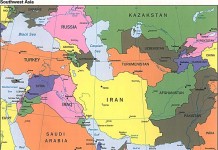Context

As Israel initiated operation Pillar of Defense, it assassinated the commander of Hamas’s military wing Ahmad Jabari in Gaza on Wednesday. The event has put the region, including Israel, on red alert. Although Netanyahu warned the operation to deal with terrorists in Gaza can be expanded, major revenge attacks from Hamas are all but certain. The key question is to assess what happens from that point onward. The first causality of this certain escalation will be Israel’s ties with Egypt, which only a day before the killing of Jabari had helped secure a truce between Hamas and Israel.
The point is Israel knows this very well and yet has gone ahead with the operation. The question is, why? While most analysts have linked the Israeli operation to its election cycle, however, that may only be a part of the reason. With Obama securely back in office, Israel is feeling, even more, pressure to deal with the increasingly adverse security environment developing in the region.
Analysis
In the past few days, Israel has come under attack from the Syrian forces in Golan Heights and the situation in the Sinai has also remained unstable, as the country came under intermittent rocket attacks from Gaza strip.
Israel is in a situation where the fundamentals of its security paradigm in the region are shifting, most directly as a consequence of the spreading Arab revolt and war against terror. Moreover, It’s extremely worried about the direction Muslim Brotherhood inspired Mursi government is taking.
Sudan And Gaza Connection
In the midst of this flux, Israel had received intelligence that Sudan was being used to store and smuggle weapons from Iran to Hamas and other groups in Gaza via Egypt. Furthermore, Israeli newspaper Haaretz reported on October 16 about an unprecedented incident that would have certainly unnerved the Israelis. According to the report, an Israeli helicopter was targeted by a Soviet-made SA 7 Strela anti-aircraft missile over Gaza. This was followed by the reported Israeli strike on the Yarmouk military complex in Khartoum on October 23.
Egypt And Gaza
With the assassination of Ahmed Jabari, Israel has up the ante against Mursi’s government.
If the Gaza operation continues and civilian causalities increase, Egypt’s government will come under mounting pressure to react. And, it will have to respond by more than simply symbolic gestures, like recalling its Ambassador from Israel or sending its Prime Minister to Gaza.
As compared to the 2008 situation, Egypt will not be able to keep the Rafah border closed. If and when Israel launches a ground operation into Gaza as it has threatened, Egypt will come under even more public pressure. If Egyptian leadership fails to match its rhetoric with action, they risk losing credibility quickly and will be compared with their predecessors.
Turkey And Gaza
While Turkey was the loudest Israeli critic of Israel during the 2008 Gaza conflict, its response to the present situation has so far been muted, mainly because of its occupation with the worsening Syrian situation. Qatar and Turkey have recently been trying to increase their influence with Hamas. This was probably meant to counter the leverage of Iran and to prevent exactly the kind of dreadful scenario that Egypt and Turkey are likely to find themselves in now, especially if the current Gaza crisis prolongs and civilian casualties mount.
Turkey’s PM Recep Tayyip Erdogan is slated to visit Egypt from November 17 to 18, and the Gaza crisis is likely to top the agenda, followed by the Syrian conflict. The present crisis will bring Egypt closer to Turkey.
The US and Egypt
While the US-Egypt relations have lately been tense, and Washington distracted by the scandals that have rocked its defense and security establishment, the Gaza crisis may be just the opportunity President Obama needs to jump start the stalled Middle East Peace Process. However, with its Iran plan consistently shot down by Obama in the past, Israel is unlikely to compromise to the security needs of its immediate periphery.
Conclusion
In the long run, what Israel hopes to achieve from the operation Pillar of Defense is to prevent Gaza from being used as a pivot against it by Syria, Iran, Egypt, and even Turkey, in any potential future regional conflict. The risk being, the Israeli action may actually trigger a wider conflict as oppose to averting it.



